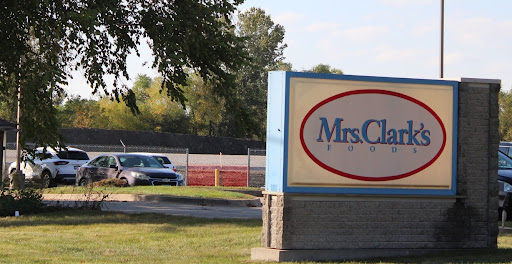Johnson takes helm as Iowa’s banking superintendent

Kathy A. Bolten Jan 26, 2024 | 6:00 am
6 min read time
1,428 wordsAll Latest News, Banking and Finance, Business Record InsiderJames Johnson grew up in southwest Iowa, where he helped with his family’s farming operations.
The Gravity, Iowa-native wanted to stay involved with agriculture but not necessarily as a farmer. In his freshman year of college, he decided to become a banker.
“Banking brought together the things I love doing,” said Johnson, who in December was appointed Iowa’s superintendent of banking by Gov. Kim Reynolds. “I love numbers. I love math. I have a love for agriculture. Being a banker allowed me to stay in my rural community, which I also love.”
Johnson’s ties to southwest Iowa are strong. He is president of the Bedford school board, is involved with his church and spends much of his free time coaching youth sports teams. He’s also president and CEO of PCSB Bank, a $300 million, family-owned bank that is located in Clarinda.
Johnson has been with the bank since 2000, when he was hired as an ag loan officer. The position was one in which he learned how to be empathetic while also looking out for the bank’s interests.
“Things don’t always look great on the farm, but you’ve got to find a way to help because that’s when [farmers] need you the most,” Johnson said. “I learned that helping sometimes means telling people ‘no.’ But when you tell them ‘no,’ to do it in a way that dignifies them and shows them ways that they can improve so that the next time you can say ‘yes.’”
Johnson, who in the past has been active with the Iowa Bankers Association, became the bank’s president in 2015.
Johnson will continue as the bank’s president and CEO while also being Iowa’s banking superintendent. Many of the bank’s day-to-day activities are being handled by other bank employees, Johnson said.
Johnson didn’t raise his hand for the superintendent’s job. “I was approached and asked if I would be interested,” he said. “It means being away from your family quite a bit and there’s a pretty good-sized workload. … After a lot of thought, I said I would be willing to be considered.”
Johnson replaces Jeff Plagge, who retired in December. Plagge had been superintendent of banking since September 2019.
Iowa has 226 state-chartered banks, which in 2023’s third quarter had deposits totaling over $89 billion, according to the division of banking website. In the same period, net loans and leases totaled over $75.4 billion.
Johnson, who oversees a state staff of more than 80 people, assumed the role on Jan. 1. His appointment is subject to confirmation by the Iowa Senate, which has not yet scheduled a hearing.
We recently caught up with Johnson.
What is the role of the superintendent of banking?
The superintendent is responsible for the oversight of the regulatory body of the Iowa division of banking [that in September 2023, became part of the Department of Insurance and Financial Services.] They make sure that the overall long-term objectives are met by the department, which is to ensure a safe and sound banking system. They also have to make sure that they properly develop staff. The staff have to know all of the businesses that we regulate. The superintendent also acts as a liaison between the regulatory and executive and legislative branches of government to make sure that everyone is aware of the issues. The superintendent also works as a liaison with the industry and trade groups.
In a nutshell, the superintendent provides an operational perspective to the division as well as having a banking background. You’re not just a regulator; you understand the inner workings of how the business works.
Delve a little deeper into the need of a banking superintendent.
The banking superintendent provides an outside perspective and helps guide the regulatory aspect of the division to be focused on safety but also making sure that [the division] doesn’t stand in the way of business. There has to be a give and take in that regard. So, having that perspective is important. Why is there a superintendent in Iowa that is a bank executive? In general, to provide that leadership and guidance.
How would you describe the overall health of Iowa’s banks?
Iowa banks are strong. Part of that is reflected from the ag economy. About two-thirds of the banks in Iowa are considered to be ag-related, which means that at least 25% of their loans are to ag-related industries. A strong ag economy leads to very strong banks.
You mentioned that two-thirds of Iowa’s banks are tied to agriculture. How does that impact Iowa’s economy?
In my opinion, banks are essential for communities. Banks … provide the capital that helps businesses grow and flourish. A lot of Iowa is ag-related industry. Banks are directly working with those industries – with farmers, seed dealers, and providing them with the resources to help grow their businesses. Banks also work with the commercial side of things, making commercial real estate loans as well as consumer loans. Banks need to be strong so that Iowans can be strong. So, the health of our banks has a direct impact on the overall economy of the state.
What challenges do banks face today?
I think the issue that banks face is the margin pressure based upon the rapidly rising interest rates. That has had an impact on bank margins – or banks’ profitability. … That is an issue banks have been working to address. Banks prepare for that, though. You’re always prepared for a rainy day and so that helps banks to weather those sorts of issues. Cybersecurity is something we’re constantly mindful of as bankers and regulators. We’re constantly looking for the threat of bad actors and for emerging threats and what we can do there. Management succession and employee turnover are issues, too. Personnel continues to be a challenge for banks.
Talk a little more about that. Statewide, many companies are struggling to find employees. Are banks also having a difficult time finding employees?
Banks are no different than other businesses. Banks are very focused on hiring quality employees and quality staff. The pool [of workers] has shrunk, so yes, banks are having a hard time finding employees.
How has the increase in interest rates affected the commercial and home loan business?
The lending side on the commercial side [of banking] has slowed. From that perspective, banks still remain ready to lend. But, [potential borrowers] are consciously making choices to wait a little bit before applying for a loan. Some of that may be due to higher payments that come with higher interest rates or just the feasibility of getting a loan. Also, I think people see the opportunity that rates will probably ease at some point and they are waiting for that to happen. … I think what we’ve seen is a delay but that the needs are still there. As we see rates begin to ease, loan [applications] will accelerate.
Are bankers being more cautious on what kind of projects they lend money for?
I think banks are always cautious on what kind of projects they lend money for. Bankers tend to be pretty conservative people. It’s their duty of care.
The national media has written a lot lately about concern about borrowers defaulting on commercial loans. Is that a concern in Iowa?
There is probably less of a direct concern for Iowa’s banks. A lot of the commercial real estate lending has been done by non-state-chartered banks, so it’s probably more of an indirect issue than a direct one. Iowa banks don’t have that as a major holding in a portfolio of commercial real estate. … It’s an area of concern, obviously, for the general economy, so we will monitor it.
What do you do in your free time?
I do a lot of sports watching. I’m an avid [Iowa] Hawkeyes fan. I love going to ball games. I coach youth sports. I help with Little League. Really, it’s trying to identify needs and help where I can.
At a Glance
Age: 47
Hometown: Gravity, Iowa
Family: Wife, Elaina; four adult children
Education: Bachelor’s degree in agricultural business, Northwest Missouri State University, 1998; in 2011, completed the Graduate School of Banking, the University of Colorado-Boulder’s Graduate School of Banking program.
Work background: Began working as a loan officer at PCSB Bank in Clarinda in 2000. Became president of the bank in 2015. In December, was appointed Iowa’s superintendent of banking.
Other activities: President, Bedford school board; president, Bedford Youth Sports, a nonprofit Little League program; board secretary, New Market Church of Christ; youth sports coach and referee.
Contact: james.johnson@idob.state.ia.us

Kathy A. Bolten
Kathy A. Bolten is a senior staff writer at Business Record. She covers real estate and development, workforce development, education, banking and finance, and housing.











